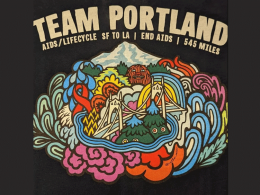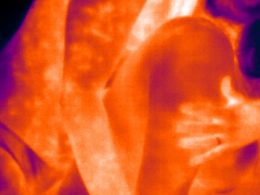An HIV cure “within months?” Not exactly.
Researchers from Denmark have begun human clinical trials in their experimental HIV treatment, The Telegraph first reported. However, the team is not on the “brink” of a cure for HIV, as some have said; they instead expect the first results from the trial “within months.”
“We’re not months away from a cure,” Kevin Robert Frost, CEO of amfAR, the Foundation for AIDS Research, told The Huffington Post. “There is still a lot of work that has to be done.”
Funded by amfAR, Danish researchers recently launched the initial stage of their clinical trial following an in vitro laboratory study conducted at Aarhus University Hospital. In the study, the researchers found success in using a specific drug to reactivate the hidden form of HIV. Only then, once the virus is drawn out of the “reservoirs” it forms in immune cells, can researchers even attempt to neutralize the HIV infection.
“Essentially, the biggest obstacle to a cure for people with HIV is that the virus lives in viral reservoirs which are not susceptible to the current drugs we have,” Frost explained. “What a lot of scientists have been trying to do lately is figure out if there are drugs that can stimulate the viral reservoirs so that we may begin to target them.”
While expanding the scientific understanding of these reservoirs is only one path toward a functional cure for HIV — other researchers have sought to develop vaccines to create an immunity to the virus — Frost warns that we can’t establish a specific time frame for success.
“It is very risky business to try and predict the pace of scientific research,” Frost told HuffPost.
Indeed, the process of taking a drug from discovery to approval by the Food and Drug Administration (for U.S.-based studies) may take 10 years, Frost said. And, at any point in multiple stages of clinical trials, the product could be discarded based on a number of factors, including negative side-effects and safety issues.
Just last week, the National Institutes of Health halted a U.S. clinical trial of an HIV vaccine after an independent review found the drug did not prevent infection or reduce HIV in the blood. The study, which involved 2,504 volunteers in 19 U.S. cities, was launched in 2009.
Though senior researcher Dr. Ole Søgaard, who works at Aarhus University Hospital’s Department of Infectious Diseases, says he’s confident the team will find success drawing the virus out of these reservoirs during the trial, he recognizes the obstacle of finding a way to destroy the virus once its in the body’s immune system.
“The challenge will be getting the patients’ immune system to recognize the virus and destroy it,” he told The Telegraph. “This depends on the strength and sensitivity of individual immune systems, as well as how large a proportion of the hidden HIV is unmasked.”
Frost said the Danish team’s study is one of the most important on the horizon.
The claim of an HIV cure “within months” comes just weeks after researchers at the Institut Pasteur in Paris published a study, reporting that 14 adults were “functionally cured” of HIV after they were given a combination antiretroviral therapy (cART). Yet, unlike the research out of Denmark, the study out of France focuses on controlling the HIV infection, rather than seeking to neutralize it completely.
What are your thoughts on this article? Agree? Disagree? Share your opinion below.
(Note: This article does not necessarily represent the opinions of Paul Morris or Treasure Island Media. We felt it right to post, allowing each of you to digest what was shared, and form your own opinion. We look forward to hearing what you think.)













